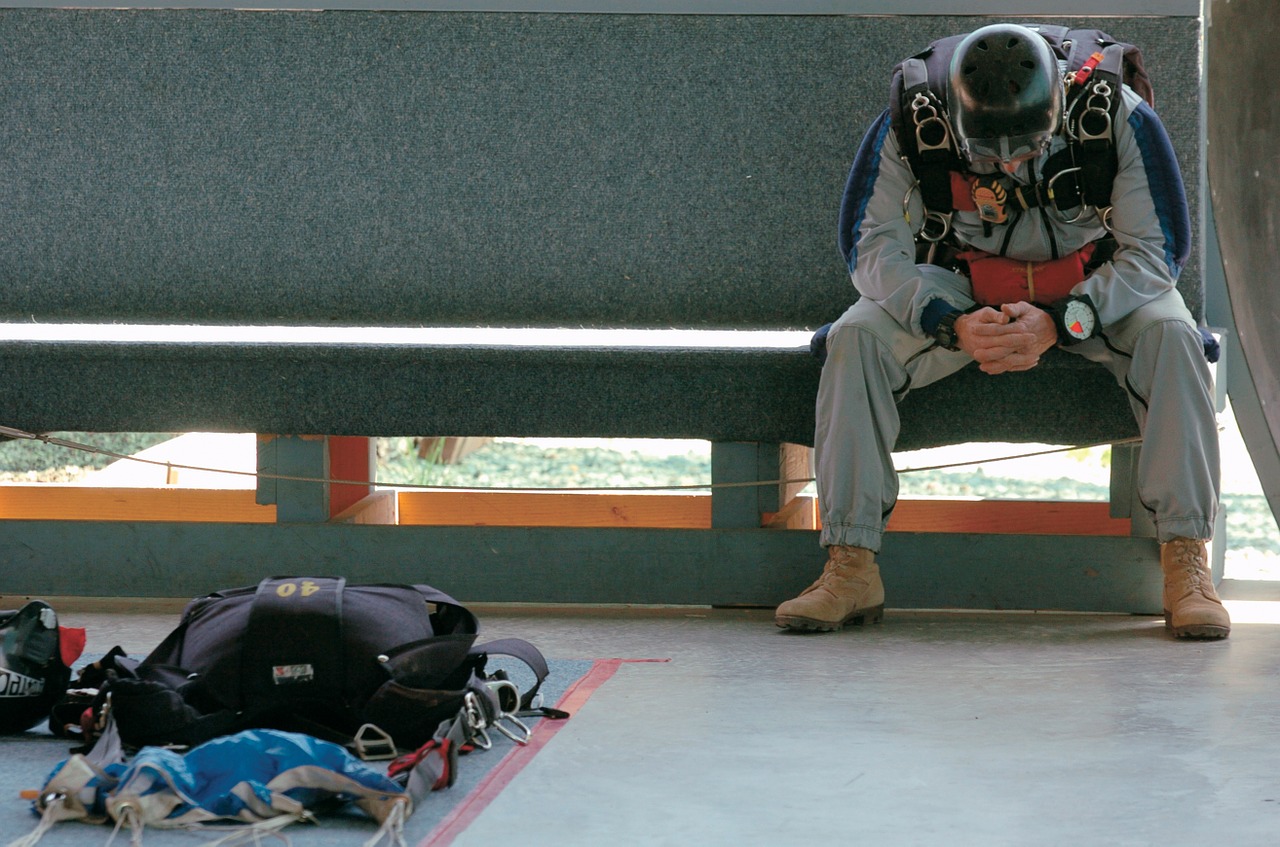
Fear is a powerful human response, as it should be. It is our primal risk management tool that controls actions and even the nervous and hormone systems to keep us safe. Although fear is a risk management tool that keeps us safe, it can also hold us back from challenges, opportunities, and the success had from overcoming those.
You can only realize your full potential when you take risk and push yourself to your limits. There are differences in risk tolerance and ability to overcome fear between people. This difference, and one's individual tolerance level for risk, is one of the defining things that have separated the great leaders and visionaries in history from...well, the rest of us. It is also, however, what separates those that could have been remarkable historical figures, but instead died young, lost their fortunes, or destroyed themselves in some other fashion.
Heightened reward simply comes with heightened risk and potential for failure. But if you seek to live an epic life worth writing about, the question you need to ask is, “How do I effectively improve my ability to overcome fear and improve my ability to tolerate risk?”
This means not trying to negate all response to risk, but trying to turn it into a logical decision-making process and not a primal response. Understand that fear is a primal risk-management tool that employs only your body and mind's perception of risk without utilizing the logical thinking and analysis tools we have developed over time. As you improve your ability to overcome fear and tolerate risk, you will have to rely on these tools to take an objective look at the risk you are putting on yourself. If you are going to short circuit or dampen your natural response to risk, it does need to be replaced with something else. This way you can decide how you want to balance comfort and stability against a storybook life, but one with the potential for also ending up dead, broke, or derelict.
An example would be not having any level of fear and being challenged to a game of Russian roulette. Without fear, you may actually engage in this game. However, if you employ a little thought, you will realize that you have one in six chance of death.
Here are some methods for improving risk tolerance, organized with the easiest to employ but least effective and ending with hardest to employ but most effective:
- Logical Thought
- Specific Exposure
- Random Planned Exposure
Logical Thought
Logical thought is much like the Russian roulette example above but done in reverse. It is simply using the advanced logical thought and analysis tools to overcome the fear. It does work, proven by people jumping out of airplanes with parachutes on. Sure, there is still some level of fear but not enough to keep someone from jumping as they know that the aerodynamics of the parachute will keep them alive. We are reduced to having fear about the chute actually opening or something else going wrong. While it does work, it only works for the very specific examples and usually doesn’t stop fear as a whole around other activity.
Fear is still in place and just working on a number of other levels, reducing one's performance and ability to realize potential. Fear creates a negative spiral of thought once initiated, which consumes your mental capacity, slowing and clouding your mental and physical reactions and your decision making. This is the “what if” fear spiral. A “what if” is fear about something else going wrong.
Sure, you’re not afraid that the concepts that keep a parachute afloat will suddenly fail to work, but other fears such as getting separated from instructor, the parachute not being packed right, freezing and not pulling cord, or others come into play. Once the “what if” happens, things begin to spiral. What if I don’t complete this project on schedule, then I lose my job, then I can’t make my house payment? This is how your mind gets consumed. You’re thinking down these paths and not focused on acting to your maximal potential in the present — not realizing your potential.
Specific Exposure
Specific exposure is the next step in overcoming fear. To do this, simply expose yourself to fear repeatedly. This is very effective. Generally, overcoming a specific fear is much harder than the actual activity that you are scared of. You may be scared of speaking in public, but after doing so, you realize it was much easier than the actual stress you put yourself under leading up the that event. A favorite example of mine is that simply overcoming the fear of squatting 1000 pounds is a harder task than actually developing the ability to do so. So many things can go wrong that if you walk up to that bar without a complete lack of fear that the “what if” spiral it creates will destroy any possibility you achieving that lift.
You cannot doubt yourself if you want accomplish this task. A mind clear and focused on the task at hand and reacting at optimal speed with confidence is the only way you can pull off that lift.
RECENT Mastery of Skill: Humility and Confidence
Doubt and “what if” spirals are how fear holds you back. Specific exposure to this environment will allow you to overcome this fear, but is harder to achieve in actuality than developing the strength to do so.
Random Planned Exposure
Random planned exposure, while an oxymoron in title, is an accurate description, as you never know where the opportunities for taking risk will be in the future. You must plan on taking them, though. This is where overcoming fear becomes a practice and a part of your life.
Just like you never know where that big opportunities or overwhelming challenging will be in the future, or what it will be, you must be prepared to act when the time comes. This means you have not had the chance to apply specific exposure techniques, you must be prepared for handling fear of the unknown. To prepare you need to make a practice of finding the things that make you uncomfortable in life and jumping into them. Constantly push yourself into unknown territory as a practice. This is not something that comes naturally, as human nature is to fall into routine. Life moves on and moments of chaos and decision arise, and when this happens don’t take the easy path that allows you to not make a change and fall back into routine.
You must stay in the practice of conquering and living in the unknown. When it comes to a new job, are you going to take that job that is going to challenge you or are you going to stay with the one you can do with your eyes closed? As a shy introvert, my choice for a career in leadership and human interaction was the best thing I could have done. If you’re afraid of commitment, are you going to run away when you find someone that you think may actually be the one for you?
Never stop living life. Step outside the routines, the tasks, and choose the path of walking directly into the unknown. The unknown is the scariest place of all to step but it is the path to growth and personal achievement. Where are you right now in life and what are you doing? Are you growing? Are you finding a path through some unknown territory? If not, you need to find it or you're just letting life live you.












2 Comments